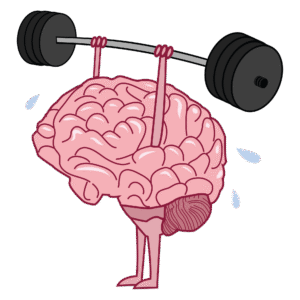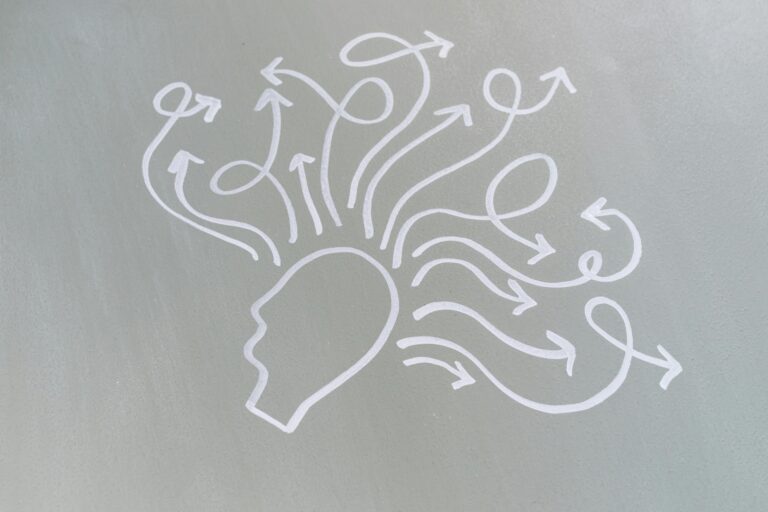
From Burnout to Balance: Your Complete Guide to Mental Health
In today’s fast-paced world, mental health is just as common as physical overload. Constant stress, screen time, and social comparison leave our minds feeling drained and overstimulated. That’s where mental fitness comes in — it’s not just the absence of illness, but the active nurturing of resilience, focus, and emotional balance. Just like physical training strengthens your body, mental fitness strengthens your mind. It’s a deliberate, often overlooked practice that helps us handle life’s challenges, build stronger relationships, and stay calm under pressure.
Welcome to your complete guide to building a resilient mind.
What Is Mental Fitness?

a) Defining the Concept
Mental fitness is the psychological strength and agility that enables you to respond to life’s ups and downs with clarity and control. It allows you to think, feel, and act with purpose — even during difficult times. Think of it as building muscle in your brain: the more awareness and mental strength you develop, the more effectively you can navigate life’s challenges.
b) Mental Health vs. Mental Fitness
Mental health encompasses emotional, psychological, and social well-being. It includes mental illness and disorders.
Mental fitness, on the other hand, is about proactively training your mind to stay sharp, adaptable, and balanced — regardless of your emotional state. Being mentally fit doesn’t mean you never feel sad or anxious. It means you recover faster and respond more constructively when those feelings arise.
c) What Hampers Mental Fitness
Modern lifestyles can significantly impair mental well-being. Common culprits include:
- Excessive screen time — overstimulates the brain, reduces focus, and impacts mood.
- Social media comparison & FOMO — distorts self-worth and creates anxiety.
- Dopamine overload from constant digital rewards — leads to emotional fatigue and shorter attention spans.
d) The Cost of Ignoring Mental Fitness
Neglecting your mental well-being can lead to serious consequences over time:
- Chronic stress and anxiety
- Increased risk of depression and burnout
- Impaired decision-making.
- Conflicted relationships
- Low resilience and emotional regulation
- Higher vulnerability to mental illness
Stress, Anxiety, Depression

Stress is a natural response to pressure, but chronic stress wears down the body and brain.
Anxiety, when persistent, disrupts sleep, productivity, and overall peace of mind. A mentally fit mind helps you pause, take control of your breath, and respond — rather than react.
Depression isn’t just feeling “low.” It involves long-lasting sadness, fatigue, reduced interest in life, and cognitive difficulty. Mental fitness plays a preventive role here — helping you:
- Recognize early signs like poor sleep and low motivation.
- Establish habits that support better emotional balance.
- Seek support without shame or delay.
3 Things to follow for a healthy and strong mind
1. Sleep & Nutrition

a) Quality Sleep = Mental Reset
- Emotional stability
- Memory and focus
- Ability to handle stress
b) Essential Nutrition for the Mind
- Omega-3 fatty acids
- B vitamins, Vitamin D
- Magnesium, Zinc
- Whole foods (fruits, veggies, legumes, nuts, lean proteins)
2. Meditation & Mindfulness

Meditation is one of the most effective, science-backed tools for mental fitness. They can help you with
- Improved focus and memory
- Reduced emotional reactivity
- Lower cortisol and anxiety levels
- Stronger mind-body connection
3. Daily habits for mental health

Consistency creates results. These simple, powerful habits keep your mental muscles in shape:
- Social Connection – Build meaningful relationships. Conversations buffer stress and uplift mood.
- Breathing & Movement – Quick breathwork and walks improve clarity and reduce tension.
- Digital Boundaries – Avoid excessive notifications, multitasking, and mindless scrolling.
- Brain Stimulation – Try puzzles, learning new skills, or creative expression.
- Mindset Reset – Find joy in small moments, smile more often, and manage expectations.
Conclusion
Mental fitness isn’t optional — it’s essential. It helps you show up as your best self, manage life’s chaos, and build a mind that works for you, not against you. Through daily practices like mindfulness, quality sleep, social connection, and stress reduction, you strengthen your ability to thrive — mentally, emotionally, and even physically.
Key Takeaways
- Mental fitness is the key to navigating stress, anxiety, and daily challenges
- Nutrition and mindful digital use directly affect your mental clarity
- Small habits — like meditation, breathwork, and quality sleep — make a big difference
- You don’t need hours — even a few intentional minutes daily create long-term change
- Do some physical activity – home workouts, walking or jogging for your mind to recharge
